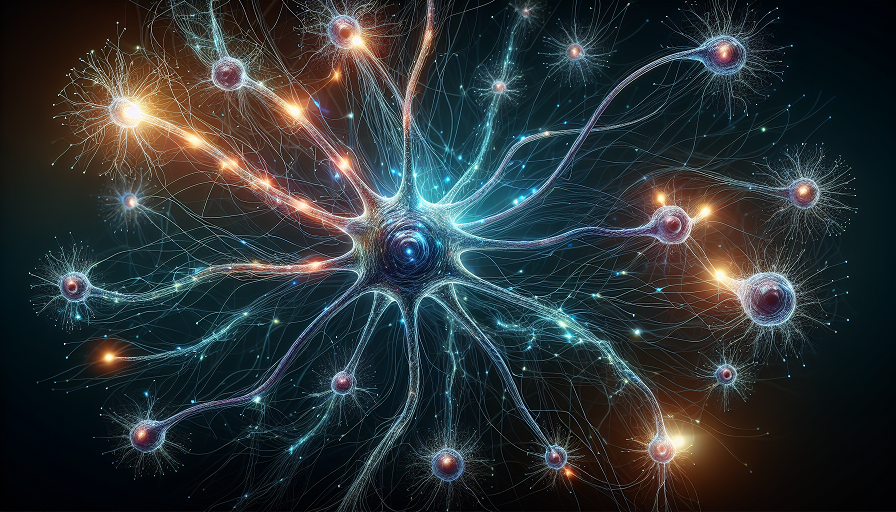
Yes, intermittent fasting can trigger brain growth factors such as brain-derived neurotrophic factor (BDNF), which supports neuroplasticity, memory, and resilience. While research is ongoing, both animal and human studies suggest that fasting stimulates cellular pathways that protect and enhance brain health.
Contents
- What Are Brain Growth Factors?
- How Intermittent Fasting Works
- Scientific Evidence on Fasting and Brain Growth Factors
- Benefits of Fasting-Linked Brain Growth
- Intermittent Fasting Methods and Brain Impact
- How Fasting Enhances Neuroplasticity
- Potential Risks and Considerations
- Complementary Practices for Brain Growth
- The Bottom Line
What Are Brain Growth Factors?
Brain growth factors are proteins that support neuron survival, growth, and adaptability. The most studied is BDNF (Brain-Derived Neurotrophic Factor), often called “fertilizer for the brain.” BDNF plays a central role in:
- Promoting neurogenesis (growth of new neurons).
- Strengthening synaptic connections.
- Enhancing learning and memory processes.
- Protecting neurons from stress and degeneration.
How Intermittent Fasting Works
Intermittent fasting (IF) involves alternating periods of eating and fasting, such as the 16:8 or 5:2 patterns. During fasting windows, the body undergoes metabolic shifts:
- Ketone production: The liver converts fat into ketones, an alternative energy source for the brain.
- Reduced insulin: Lower insulin levels improve cellular sensitivity and reduce inflammation.
- Autophagy activation: Damaged cells are broken down and recycled, promoting cellular health.
These processes indirectly stimulate pathways linked to BDNF production and brain resilience.
Scientific Evidence on Fasting and Brain Growth Factors
- Animal studies show fasting increases BDNF levels, particularly in the hippocampus, the brain region responsible for memory and learning.
- Research in Experimental Biology demonstrates that intermittent fasting improves synaptic plasticity and learning ability in rodents.
- Human studies suggest intermittent fasting enhances markers of cognitive function and may protect against neurodegenerative disorders like Alzheimer’s.
- Ketone bodies produced during fasting, especially beta-hydroxybutyrate (BHB), directly stimulate BDNF expression.
Benefits of Fasting-Linked Brain Growth
- Memory enhancement: Higher BDNF levels improve recall and learning capacity.
- Neuroprotection: Growth factors shield neurons from oxidative stress and excitotoxicity.
- Mood regulation: BDNF is linked to lower rates of depression and anxiety.
- Delayed aging: Fasting-induced BDNF may slow brain aging and reduce cognitive decline risk.
Intermittent Fasting Methods and Brain Impact
- 16:8 Method: Fasting for 16 hours daily increases ketone availability and BDNF expression.
- Alternate-Day Fasting: Alternating between eating and fasting days shows strong effects on neurogenesis in animal studies.
- 5:2 Diet: Restricting calories two days a week may offer similar brain benefits while being more sustainable for some.
How Fasting Enhances Neuroplasticity
Fasting promotes neuroplasticity by:
- Encouraging synaptic rewiring and strengthening new connections.
- Activating BDNF-driven growth in the hippocampus.
- Supporting learning through ketone-fueled energy efficiency.
- Balancing neurotransmitters like glutamate and GABA for better focus.
Potential Risks and Considerations
- Short-term brain fog: Early fasting adaptation can cause fatigue and reduced focus.
- Over-restriction: Too much fasting may increase stress hormones like cortisol, which harm neurons if chronically elevated.
- Individual differences: Benefits vary based on age, genetics, and metabolic health.
- Medical conditions: People with diabetes or eating disorders should avoid fasting without medical supervision.
Complementary Practices for Brain Growth
- Exercise: Physical activity synergizes with fasting to raise BDNF levels.
- Sleep: Deep sleep enhances consolidation of learning and memory supported by BDNF.
- Omega-3 fatty acids: Essential for neuron membrane health and synaptic plasticity.
- Mindfulness meditation: Helps reduce stress, preserving the neuroprotective benefits of fasting.
The Bottom Line
Intermittent fasting does trigger brain growth factors like BDNF, promoting neuroplasticity, memory, and resilience. While not a magic cure, combining fasting with exercise, sleep, and nutrition provides a powerful framework for supporting long-term brain health.

